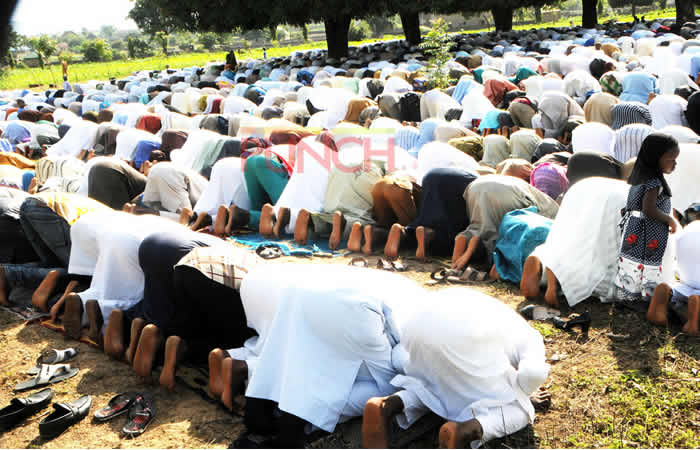
During Ramadan, Muslims fast from sunrise to sunset, avoiding food, drinks and other pleasurable desires.
Through fasting, Muslims take the time to get closer to Allah (SWT) by improving their ibadah (worship) and increasing dhikr (remembrance of God).
Also, it was during Ramadan that the Holy Quran was revealed to Prophet Muhammad (PBUH).
In Nigeria, the Muslim faithful will either celebrate Eid on Friday (tomorrow) if the crescent moon of Shawwal is sighted today. If not, the celebration will take place on Saturday, meaning this year’s fast will complete 30.
Seven things to know about Eid el-Fitr
1. Eid al-Fitr is one of the two official holidays celebrated within Islam world. The second one is Eid al-Adha.
2. Eid al-Fitr is celebrated by Muslims worldwide because it marks the end of the month-long dawn-to-sunset fasting of Ramadan.
3. Eid al-Fitr falls on the first day of Shawwal in the Islamic calendar (the tenth month of Islamic calendar) when the new moon is sighted by local religious authorities.
4. Eid al-Fitr is known under various other names in different languages and countries around the world. The day is also called Lesser Eid, or simply Eid.
5. Eid al-Fitr has a particular salat (Islamic prayer) that consists of two rakats (units) generally performed in an open field or large hall.
6. The Eid salat can only be performed in congregation (jamāʿat) and features seven additional Takbirs (raising of the hands to the ears while saying “Allāhu ʾAkbar” meaning (God is the greatest).
7. After the salat, Muslims celebrate Eid el-Fitr in various ways with food (Eid cuisine).





